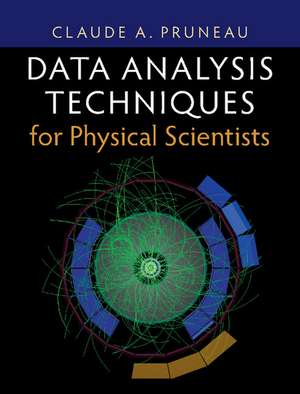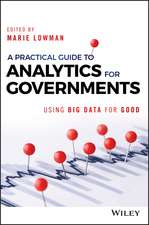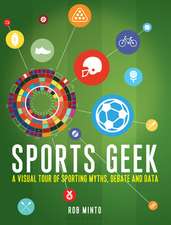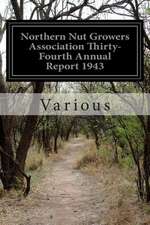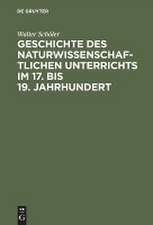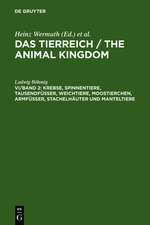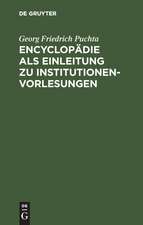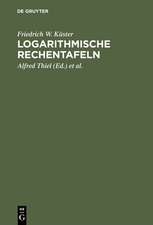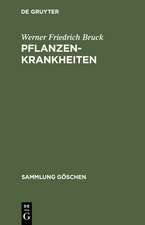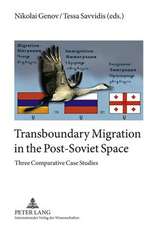Data Analysis Techniques for Physical Scientists
Autor Claude A. Pruneauen Limba Engleză Hardback – 4 oct 2017
| Toate formatele și edițiile | Preț | Express |
|---|---|---|
| Paperback (1) | 376.32 lei 43-57 zile | |
| Cambridge University Press – 15 iun 2022 | 376.32 lei 43-57 zile | |
| Hardback (1) | 677.84 lei 43-57 zile | |
| Cambridge University Press – 4 oct 2017 | 677.84 lei 43-57 zile |
Preț: 677.84 lei
Preț vechi: 761.63 lei
-11%
Puncte Express: 1017
Preț estimativ în valută:
119.80€ • 140.94$ • 104.58£
119.80€ • 140.94$ • 104.58£
Carte tipărită la comandă
Livrare economică 06-20 aprilie
Specificații
ISBN-13: 9781108416788
ISBN-10: 1108416780
Pagini: 716
Ilustrații: 195 b/w illus. 20 tables
Dimensiuni: 193 x 253 x 35 mm
Greutate: 1.7 kg
Editura: Cambridge University Press
Colecția Cambridge University Press
Locul publicării:Cambridge, United Kingdom
ISBN-10: 1108416780
Pagini: 716
Ilustrații: 195 b/w illus. 20 tables
Dimensiuni: 193 x 253 x 35 mm
Greutate: 1.7 kg
Editura: Cambridge University Press
Colecția Cambridge University Press
Locul publicării:Cambridge, United Kingdom
Cuprins
Preface; How to read this book; 1. The scientific method; Part I. Foundation in Probability and Statistics: 2. Probability; 3. Probability models; 4. Classical inference I: estimators; 5. Classical inference II: optimization; 6. Classical inference III: confidence intervals and statistical tests; 7. Bayesian inference; Part II. Measurement Techniques: 8. Basic measurements; 9. Event reconstruction; 10. Correlation functions; 11. The multiple facets of correlation functions; 12. Data correction methods; Part III. Simulation Techniques: 13. Monte Carlo methods; 14. Collision and detector modeling; List of references; Index.
Recenzii
'This ambitious book provides a comprehensive, rigorous, and accessible introduction to data analysis for nuclear and particle physicists working on collider experiments, and outlines the concepts and techniques needed to carry out forefront research with modern collider data in a clear and pedagogical way. The topic of particle correlation functions, a seemingly straightforward topic with conceptual pitfalls awaiting the unaware, receives two full chapters. Professor Pruneau presents these concepts carefully and systematically, with precise definitions and extensive discussion of interpretation. These chapters should be required reading for all practitioners working in this area.' Peter Jacobs, Lawrence Berkeley National Laboratory
'The techniques described in this textbook on correlation functions, and on efficiency and acceptance of an experimental apparatus, are key to understanding the approach used in many contemporary large-scale experiments; they are relevant for theoretical and experimental researchers alike, both in nuclear and particle physics and in many other areas where large data volumes and multi-dimensional data are investigated. I consider this an important and unique addition to the current literature on the subject.' Peter Braun-Munzinger, GSI Helmholtzzentrum fur Schwerionenforschung, Germany
'This text is a very welcome addition to the books available in the area. It provides concise and eminently readable information on probability and statistics but also deals in quite some detail with many of the techniques used currently in running high-energy and nuclear physics experiments but not covered in standard texts. A case in point is the beautiful exposé on Kalman filtering, and the sections which deal with particle identification techniques. Presented so that theoretical researchers can get much-needed information on how data analysis works in such environments, the text is also very well suited to all students of experimental physics, and is particularly interesting for students and more senior researchers alike who have specialized in large nuclear and particle physics experiments.' Johanna Stachel, University of Heidelberg
'Data Analysis Techniques for Physical Scientists is both monumental and accessible. While targeted towards data analysis methods in nuclear and particle physics, its breadth and depth insure that it will be of interest to a much broader audience across the physical sciences. Designed as a textbook, with ample problems and expository text, this wonderful new addition to the literature is also suitable for self-study and as a reference. As such, it is the book that I will first recommend to my students, be they undergraduates or graduate students.' W. A. Zajc, Columbia University, New York
'The text is clearly written, and the book is well laid out with numerous useful illustrations. For its target audience, this is an excellent book.' A. H. Harker, Contemporary Physics
'Data Analysis Techniques for Physical Scientists offers an accessible but rigorous and comprehensive presentation of data analysis techniques in modern large-scale experiments. Furthermore, much of the book is applicable beyond the physical sciences; it is a useful resource on probability and statistics that would benefit anyone who works with large data sets. Taken as a whole, it is an exceptional general reference for graduate students and seasoned experimental researchers alike.' Emilie Martin-Hein, Physics Today
'The techniques described in this textbook on correlation functions, and on efficiency and acceptance of an experimental apparatus, are key to understanding the approach used in many contemporary large-scale experiments; they are relevant for theoretical and experimental researchers alike, both in nuclear and particle physics and in many other areas where large data volumes and multi-dimensional data are investigated. I consider this an important and unique addition to the current literature on the subject.' Peter Braun-Munzinger, GSI Helmholtzzentrum fur Schwerionenforschung, Germany
'This text is a very welcome addition to the books available in the area. It provides concise and eminently readable information on probability and statistics but also deals in quite some detail with many of the techniques used currently in running high-energy and nuclear physics experiments but not covered in standard texts. A case in point is the beautiful exposé on Kalman filtering, and the sections which deal with particle identification techniques. Presented so that theoretical researchers can get much-needed information on how data analysis works in such environments, the text is also very well suited to all students of experimental physics, and is particularly interesting for students and more senior researchers alike who have specialized in large nuclear and particle physics experiments.' Johanna Stachel, University of Heidelberg
'Data Analysis Techniques for Physical Scientists is both monumental and accessible. While targeted towards data analysis methods in nuclear and particle physics, its breadth and depth insure that it will be of interest to a much broader audience across the physical sciences. Designed as a textbook, with ample problems and expository text, this wonderful new addition to the literature is also suitable for self-study and as a reference. As such, it is the book that I will first recommend to my students, be they undergraduates or graduate students.' W. A. Zajc, Columbia University, New York
'The text is clearly written, and the book is well laid out with numerous useful illustrations. For its target audience, this is an excellent book.' A. H. Harker, Contemporary Physics
'Data Analysis Techniques for Physical Scientists offers an accessible but rigorous and comprehensive presentation of data analysis techniques in modern large-scale experiments. Furthermore, much of the book is applicable beyond the physical sciences; it is a useful resource on probability and statistics that would benefit anyone who works with large data sets. Taken as a whole, it is an exceptional general reference for graduate students and seasoned experimental researchers alike.' Emilie Martin-Hein, Physics Today
Notă biografică
Descriere
A comprehensive guide to data analysis techniques for the physical sciences including probability, statistics, data reconstruction, data correction and Monte Carlo methods.
